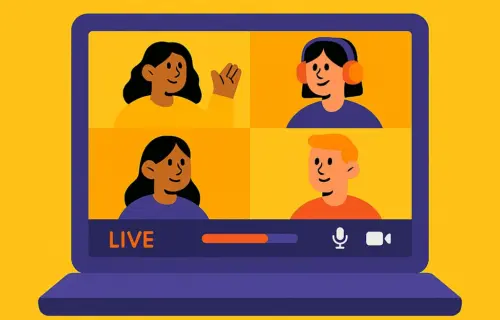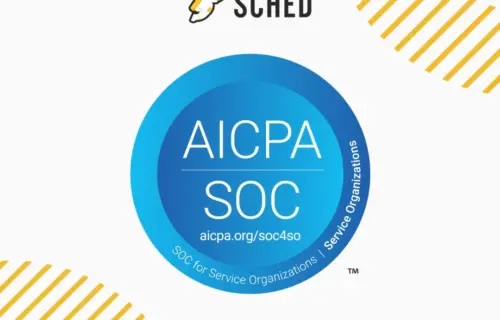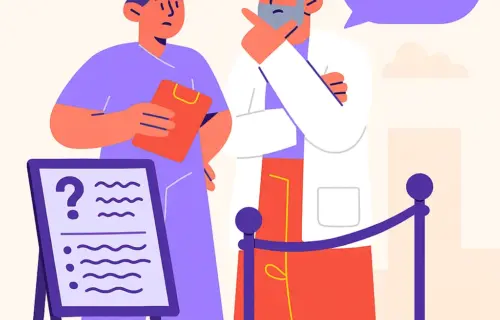Are you tired of dealing with chaos and confusion during your events? Well, we’ve got some eye-opening insights for you.
In our article, we’ll dive into the repercussions of ineffective communication and how it can wreak havoc on your carefully planned occasions. From miscommunication mishaps to wrong information gone wild, we’ll uncover the true cost of dropping the communication ball.
So grab a coffee, buckle up, and get ready to learn why a solid event communication system is an absolute must-have for success. Let’s dive in!
Miscommunication and wrong information
Table of contents
Miscommunication is a great plot device for a sitcom – not so much for an event. Misinformation can turn an event into chaos.
- 47% of event creators reported that communication issues were their biggest challenge during event planning and execution.
For example, imagine a keynote speaker in the wrong room due to schedule confusion. Even worse, key sponsors could be unprepared or inconvenienced. This is what happens when mass communication event management fails, and wrong information flies around.
Solutions
- Email communication: Trustworthy event management tools can help. They send clear, brief emails to everyone involved. Tools like Sched send automatic invites and daily reminders. This ensures that everyone has correct information when needed as part of an effective event communication plan.
- Real-time updates: Fast updates through apps or web platforms fix misinformation instantly. Attendees can be redirected. Schedules can be adjusted. Speakers can be rescheduled right away, contributing to effective event communication management.
- Clear signs: Don’t forget about physical signs. Event volunteers can guide attendees on the spot.
- Information desks: An info desk at your event helps. It can provide immediate help to anyone who’s confused or needs directions, playing a crucial role in mass communication event management.
- Rehearsals: Practicing with your main speakers and key sessions helps. It makes sure everyone understands what’s happening.
- Pre-event briefings: Briefings before the event are important. They help staff, volunteers, speakers, and sponsors understand their roles, timings, and locations and are an essential part of the event communication plan.
Declining attendee interest
Attention in this game is as precious as tickets to a Taylor Swift concert. It’s hard-won. However, there is a fine line between keeping people engaged, and doing too much. Offering choices is great, but there needs to be a clear roadmap of what and where attendees need to be.
This is the result of weak event communication. Attendees can feel lost amidst many activities. They don’t know where to focus their attention, leading to less interaction. This can turn a lively crowd into a disinterested one.
Solutions
- Interactive chat channels: Use communication tools with chat features. Tools like Sched’s Event Chat allow direct chats with attendees on web and mobile apps. This boosts interaction and shares crucial updates, contributing to the overall event communication management.
- Push notifications: Keep attendees updated with push notifications. Send reminders or alert them of last-minute schedule shifts. They can be sent via event apps, web platforms, or even SMS for those without constant internet access, supporting effective mass communication event management.
- Live polls and surveys: Boost interaction by using live polls and surveys during sessions.
- Social media: Create unique event hashtags. Encourage attendees to share their experiences online. This boosts interaction and creates online buzz, making it a vital part of the event communication plan.
- Interactive sessions: Host Q&A sessions, panel discussions, or workshops. This promotes active attendee involvement.
- Networking platforms: Use event networking platforms or set networking times in your schedule. This encourages attendees to connect with each other and is an integral part of successful event communication management.
Low attendance and sparse crowds
An event can feel like a lonely dance floor at a sad wedding when an event planner makes a mess of their event communication.
Attendees might forget to register, lose track of the event schedule, or even forget the event entirely due to a lack of updates. This indicates a failure in your event communication plan.
The result? Empty rooms and a low turnout, no matter how amazing your event is. Additionally, you’ll lose potential attendees who weren’t well informed about the registration process, exciting speakers, or workshops.
Solutions
- Event management platforms: Tools like Sched come with notification systems. Send regular updates and reminders about your event. This keeps attendees engaged and is a key part of mass communication event management.
- Email newsletters: Send newsletters regularly. Highlight your event, speaker profiles, and activities. Bonus point? Track email open and click rates to gauge attendee interest. This is another vital aspect of your event communication plan.
- SMS reminders: Consider sending SMS reminders. Do this a day before the event or a few hours before important sessions. This strategy fits into effective event communication management.
- Social media promotion: Regularly post updates, sneak peeks, behind-the-scenes, or interesting speaker snippets on your event’s social media profiles. This approach is part of comprehensive mass communication event management.
- Event registration system: Use a robust event registration system to give attendees a seamless way to join your event. This is their first port of call for your event. Set high expectations from the offset to improve your event communication flow.
- Collaborate with speakers and sponsors: Encourage your speakers and sponsors to promote your event on their channels. This reaches a broader audience and enhances your event communication management efforts.
Negative perception and reputation damage
Sadly, gossip seems to travel faster than the speed of light. Especially when it’s about you. All it takes is one bad incident, a misunderstanding, or a minor oversight, to create negative chatter around your event.
Attendees, speakers, or sponsors might share their disappointment on social platforms. This can seriously harm your event’s reputation. This situation arises when there is an event communication failure.
The stats sing this point louder than any anecdote can. Take the study by Cone Communications that revealed 89% of consumers would be deterred from attending an event or purchasing event tickets if they read negative comments or reviews on social media platforms.
Solutions
- Effective use of event management tools: Platforms like Sched facilitate regular and clear event communication. This ensures a smooth event experience and protects your reputation.
- Social media monitoring: Monitor mentions about your event on social media. Responding quickly and empathetically to any concerns can prevent potential reputation damage. This is a critical task in any event communication plan.
- Public channel moderation: Tools like Sched let you control public chats. Ensuring conversations stay professional and productive is critical for your mass communication event management plan.
- Post-event surveys: Collecting feedback after your event should form a part of your event communication management plan. Use your findings to identify areas for improvement. This also demonstrates your commitment to continually improving and satisfying your attendees.
Overlooking sponsorship and collaboration opportunities
Sponsors don’t give you money out of a sense of charity. It’s an investment. They want to see something in return.
When your event communication isn’t up to par, you risk golden opportunities for collaboration and sponsorship. Potential partners might not be aware of collaboration opportunities. Or existing sponsors might be unhappy because they weren’t clearly informed about their roles and benefits. This is a clear case where an event communication plan is essential.
Solutions
- Sponsorship packages: Don’t forget to include promoting sponsorship opportunities in your event communication plan. Clearly describe the benefits sponsors will receive at different sponsorship tiers. This openness will attract more potential sponsors who can choose a package that fits them.
- Give regular updates: Keep sponsors up-to-date about event progress, including attendee numbers, promotional activities, and other key metrics. Regular updates are a key element of mass communication event management.
- Promote sponsors: Make sure sponsors are visible before, during, and after the event through various channels – on the event website, in email newsletters, social media posts, and other event material. Using a robust event communication management platform is another way to effectively feature sponsors.
Piling support requests
If you give a snowball the chance to grow, it can turn into an avalanche. In the context of events, it means one small irritation can grow into a major problem. In short, beware of a domino effect.
Not clearly conveying event details can trigger a surge of questions from confused participants. Every question needs time and resources to answer, building up a backlog and delaying responses to new questions.
This will annoy attendees, impact their experience, and drain your resources. Plus, if you’re repeatedly asked the same questions, it might hint at a gap in your event communication.
Solutions
- Establish clear expectations: Share all necessary information about the event before it happens. This includes schedules, venue details, and guidelines. This mass communication event management approach will reduce the number of questions and support requests.
- FAQs: Add a Frequently Asked Questions section to your event website or emails. Include answers to common questions to halt attendee queries before they start.
- Get help: Despite implementing an airtight event communication plan, participant queries are inevitable. Take a load off your shoulders and pass the burden to a dedicated team. Sched offers priority support services for your participants so you can focus on what matters most.
- Leverage communication channels: Don’t assume attendees congregate on one channel Most have a preferred communication channel and will cling to that for information. Event communication management means factoring those in. Communicate with attendees across various channels such as social media, email, and push notifications to cover all bases.
- Feedback Surveys: After the event, solicit feedback on your event communication efforts. This can help identify gaps where information is lacking and help you to make necessary adjustments for future events.
Revolutionize event communication
Event communication is vital for any event. By incorporating Sched into your event communication plan, you can dodge the issues of misinformation, disinterest, low turnout, bad reputation, missed opportunities, and frustration. This is the essence of effective mass communication event management.
Want to see what a difference Sched can make for your event? Why not try it? Sign up for a free trial today and explore how it can help you create an efficient, powerful, and memorable event experience through improved event communication management.








